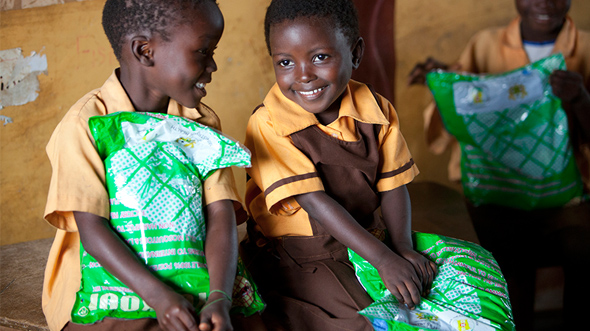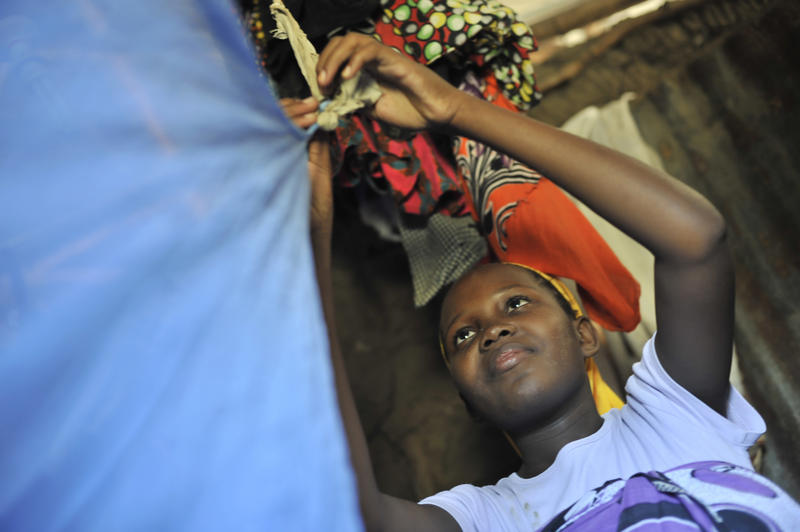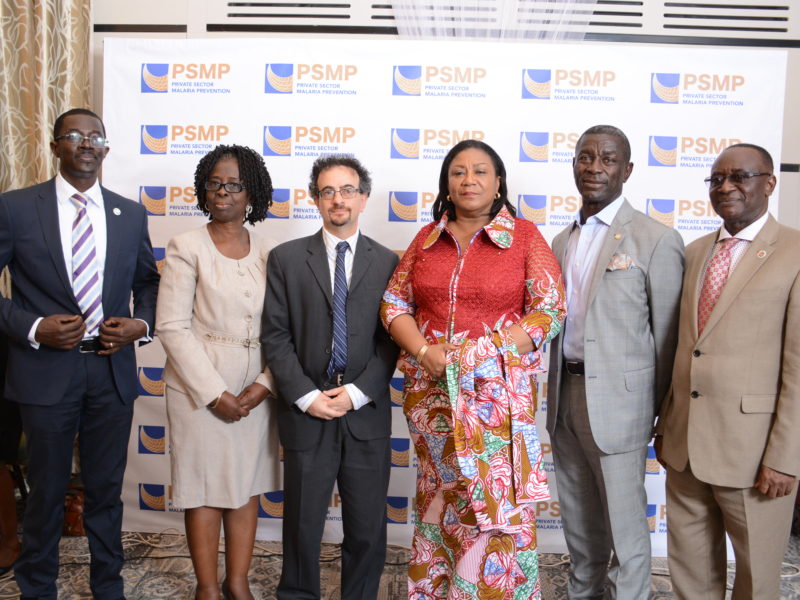Time was, there was a thriving market for bed nets in Ghana. A local tailor would craft one out of lace or other cotton fabric and families were protected as they slept from mosquitoes carrying the deadly malaria parasite. The nets weren’t perfect – they weren’t dipped in an insecticide that helps reduce the spread of malaria – but they did provide some protection and Ghanaians could buy them in the market.
Today, across Africa, there are an estimated 500 million bed nets, most treated with an insecticide that repels and kills mosquitoes, breaking the cycle of malaria transmission. Fifty-three percent of people sleep underneath one every night. The number of malaria cases on the continent has dropped, with 6.8 million lives saved since 2000. Sixty percent of that can be attributed to insecticide-treated bed nets. It’s the single most-effective tool against malaria.
Still, there is a wrinkle: International aid agencies, primarily USAID, have provided these bed nets for free for so long that the commercial market for bed nets in Ghana has disappeared. Ghanaians just can’t buy a replacement for a ripped one, or a new net for a new family member.
Enter the Private Sector Malaria Prevention program, a project of the Johns Hopkins Center for Communication Programs (CCP). Funded by a three-year, 5 million GBP grant from the United Kingdom’s Department for International Development, the aim is to make it so anyone in Ghana can buy an insecticide-treated bed net.
“Bed net campaigns across sub-Saharan African have been hugely successful, but they simply aren’t sustainable forever,” says Matthew Lynch, CCP’s malaria technical director. “Eventually, aid agencies will change their focus and no longer prioritize bed nets. Where will that leave people like those in Ghana? Our goal is to ensure there is a thriving commercial market for bed nets so that people can buy them when they need them and continue to protect themselves and their families from contracting malaria.”
Billions of dollars have been spent over the last 15 years on insecticide-treated bed nets in sub-Saharan Africa. The nets don’t last forever. They need replacing roughly every three years and replacement campaigns themselves are costly (they are typically handed out at measles vaccination sites or health clinics). And if your bed net tears or your child needs one to take to the secondary school or university, it can be close to impossible to get a new treated net.
Even Felix Nyanor-Fosu, who runs the Private Sector Malaria Prevention program on the ground in Ghana, can’t buy a bed net. He tried. Several friends whose children needed them for school came to him recently since he has worked in the bed net world for more than a decade. He tried but he wasn’t able to help.
The goal of the Ghana-based program is to get bed nets on the shelves in the shops and markets. The project is also trying to get the private sector to provide bed nets to their employees, pitching employers on the cost-effectiveness – fewer sick days, higher productivity – of keeping workers safe from malaria. The program has an advocacy component that in part urges companies to be “Malaria Safe,” and invest in malaria prevention in the workplace and community.
Nyanor-Fosu and his team have been visiting large employers in the country, offering them 20 percent subsidies in the first year to encourage the purchase of bed nets.
In the meantime, Lynch is working on a market analysis report looking at consumer preferences, willingness to pay, market size and more that they will share with international bed net manufacturers. The CCP team will also create generic advertising reminding people of the benefits of sleeping under treated nets each night, hoping to boost demand for the fledgling net market. The goal is to support Ghana’s national malaria control strategy, which includes distributing free treated bed nets through health facilities for pregnant women and infants as well as through schools to maintain high coverage. The commercial component will be there to fill the remaining gaps. Lynch says the economies of Africa are much stronger than they were 15 years ago when big bed net campaigns began, and many households can now afford to buy nets of their own – perhaps larger or in different colors than the ones they have been receiving for free.
CCP is working on a similar market analysis in Tanzania.
The good news is that the free bed nets have created a real net culture in Ghana. Not only do they offer protection from malaria, they provide a barrier from the other buzzing and crawling creatures that come out at night, making for a better night’s sleep.
“Virtually every household in Ghana has had the experience of having a net and people really do value them,” Nyanor-Fosu says. “That has created a lot of demand and awareness.”




